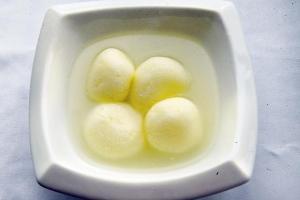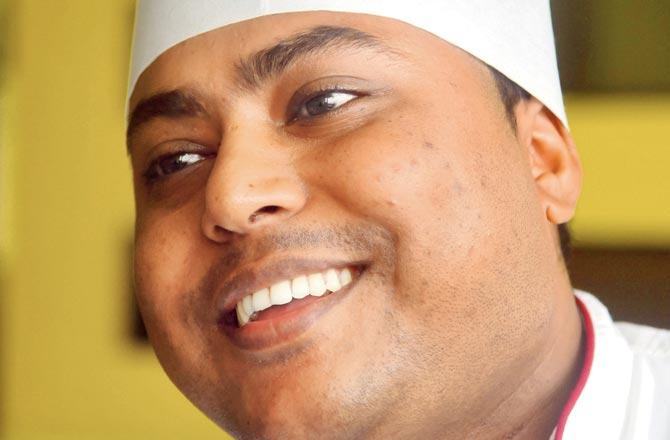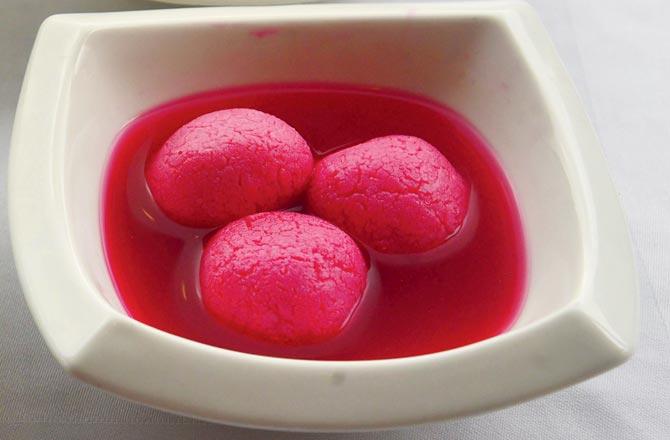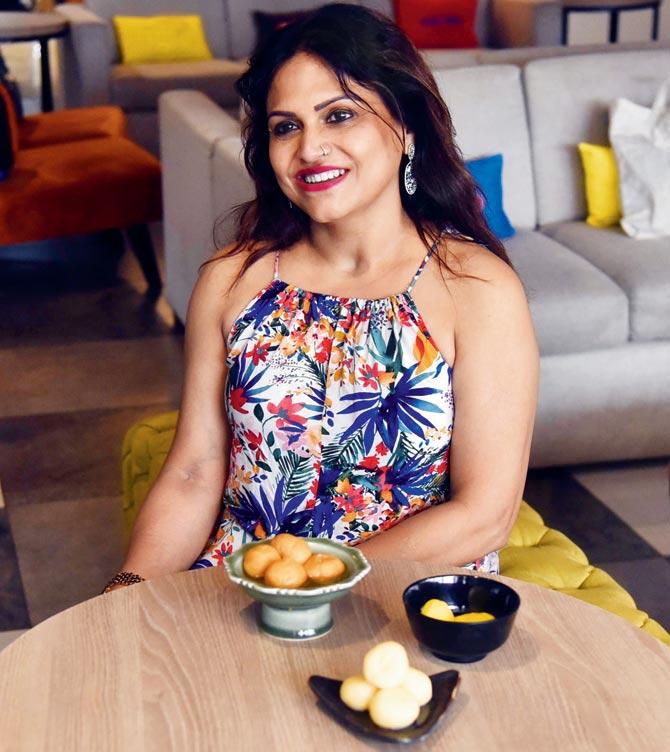Great battles are fought inside boardrooms and not on battlegrounds. But the fight for the rasgulla is unfolding in India's kitchens

From the bylanes of Kolkata's Baghbazar and the holy city of Puri to almost all sweet shops across the country, rasgullas continue to remain one of India's most-loved food inventions. In West Bengal, children grew up listening to stories of entrepreneur Nobin Chandra Das, who in 1868 supposedly altered the oeuvre of Bengali sweets with 'rosogolla', as they call the sweetmeat. Understandably, it became a symbol of all things Bengali. Enter Odisha, the neighbouring state which insists its 'rasagola' was first served in Bhubaneswar's iconic Jagannath Temple in the 12th century. This also finds mention in works of Balram Das, a 15th century poet. So, case closed? Quite not.
For decades, both West Bengal and Odisha have wanted a bigger piece of the pie; each staking their claim over the famed dessert. But it was only in 2015 that the sweet found itself a part of a legal tussle. This was when both state governments demanded a Geographical Indication (GI) tag. World Intellectual Property Organisation says: "A geographical indication is a sign used on products that have a specific geographical origin and possess qualities or a reputation that are due to that origin."

Shovan Hathi. Pics/Atul Kamble & Pradeep Dhivar
Battle lines were drawn, but in 2017, West Bengal was awarded a GI tag. "Nobody must have heard of rosogolla being made in Odisha; you get the best ones only in Kolkata. And the 2017 verdict proved this ownership," says Shovan Hathi, a 31-year-old Bengali chef. Hathi, who hails from the coastal West Bengal town of Digha, meets us at the Hotel Marine Plaza in Marine Drive to discuss this conflicted dessert. We are here because on July 29 this year, the Odisha rasagola, too, got a GI tag.
"On November 14, the Bengal government even celebrates the day as Rosogolla Diwas. We have staked our claim already, and the new GI tag for Odisha will not make any difference. In the end, the sweet belongs to us," he adds, putting on the table four variants of the sweet he has made for us—beetroot, carrot, jaggery and the original white, spongy rosogollas.

Beetroot rosogolla made by Shovan Hathi
Hathi spent almost 20 years of his life in Kolkata. He grew up picking up fights with his Odiya friends over the sweet. "In Bengal, there is a tradition of preparing rosogollas for guests. I have mostly eaten it at home as my mother made them the best. But the second best type comes from Kolkata's Baghbazar, where you get nolen gur (jaggery extracted from date palm trees) rosogollas. You get nothing like this in Odisha," Hotel Marine Plaza's chef de partie tells us.
But Ananya Banerjee begs to differ. The home chef comes from a multi-ethnic family and calls for a ceasefire. When we meet her at the Mumbai Cricket Association (MCA), Banerjee is all set to give us a taste of the lesser-known Odisha rasagolas. "While I am born in Kolkata, my ancestors have lived in Odisha for the longest time. As my maiden surname is Panda, I was constantly teased at school by my Bengali friends. It all finally ended when I married a Bengali and became a Banerjee," she says, laughing.

Odiya rasagolas are more brown in colour
Banerjee, who has been living in Mumbai for almost a decade now, always felt it was important for her to go back to the roots. So, apart from homestyle Bengali food, her pop-ups now see Odiya cuisine. All thanks to her in-laws, who lived in Bhubaneshwar and introduced her to this food. "I have lived in Odisha for almost seven to eight years. There, I noticed that the two states [Bengal and Odisha] have a lot in common. The northern parts of Odisha have a heavy Bengali influence. The mustard fish there is prepared in the same fashion." And thus, Banerjee finds this fight "quite silly".
But amid the whole argument, both Banerjee and Hathi feel the preparation of rasgullas is more or less the same in both the states. Hathi says the Bengali variant takes about three hours, while the Odiya one can be served in two hours. "Authentic Bengali rosogollas are spongy and light. But the ones in Odisha are more dense and gooey," he says.

Ananya Banerjee
To make either, chhena (in Odiya) or chhana (in Bengali), which is unripened curd cheese made from full cream cow milk, is used. "For the milk to split, we add a souring agent like lemon juice or vinegar. Then chhena and whey are separated by draining in a muslin cloth. The drained chhena is then kneaded and rolled to balls," informs Hathi. These are then cooked in sugar syrup till they turn light and spongy.
The only difference, however, is the colour of the end product. The ones you get in Odisha are brownish, while in Bengal they are pure white. "Odisha rasagolas originate from Pahala, a hamlet in the outskirts of Bhubaneshwar. There, a pinch of powdered caramalised sugar is added to the aforementioned recipe. And thus, the end product is sweeter and darker," explains Banerjee.
If it weren't for the caramalised sugar, the famed sweet would have never been drawn into a legal fight, Banerjee says. "Both variants are extremely special; this fight needs to end," she concludes.
Catch up on all the latest Mumbai news, crime news, current affairs, and also a complete guide on Mumbai from food to things to do and events across the city here. Also download the new mid-day Android and iOS apps to get latest updates
 Subscribe today by clicking the link and stay updated with the latest news!" Click here!
Subscribe today by clicking the link and stay updated with the latest news!" Click here!







